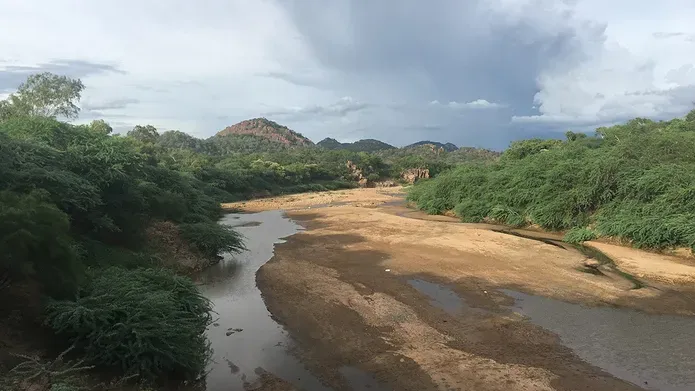Research project
UPSCAPE: supporting decision-making for sustainable water resources in Peninsular India
Rapid economic change and population growth increase the pressure on water resources management to address competing demands across river basins. The key challenge is to give adequate representation to the many local, small-scale water management interventions in larger-scale decision-making.

Completed
January 2016
January 2019
Funding
Funders
Natural Environmental Research Council (NERC) and the Ministry of Earth Sciences in India through the Newton-Bhabha initiative
In Peninsular India, traditional water management, using small-scale surface water harnessing or shallow groundwater has been widely superseded by deep groundwater pumping in recent decades. This has benefited local water security and food production, however, falling groundwater levels are undermining water security more widely, particularly in poor monsoon years.
The UPSCAPE project investigated the impact of small-scale decision making on water resources at the larger basin scale. We explored basin-scale water and food security, made climate change projections, and co-developed future socio-economic pathways of change with basin stakeholders. We created a policy focussed decision support tool to indicate how future change, both societal and environmental, could be mitigated by a range of potential management scenarios.
People
Project lead(s)
Professor John RowanExternal team members
UK Centre for Ecology and Hydrology
British Geological Survey
Indian Institute of Science Bangalore
Ashoka Trust for Research in Ecology and the Environment
International Crops Research Institute for the Semi-Arid Tropics (ICRISAT) Development Centre